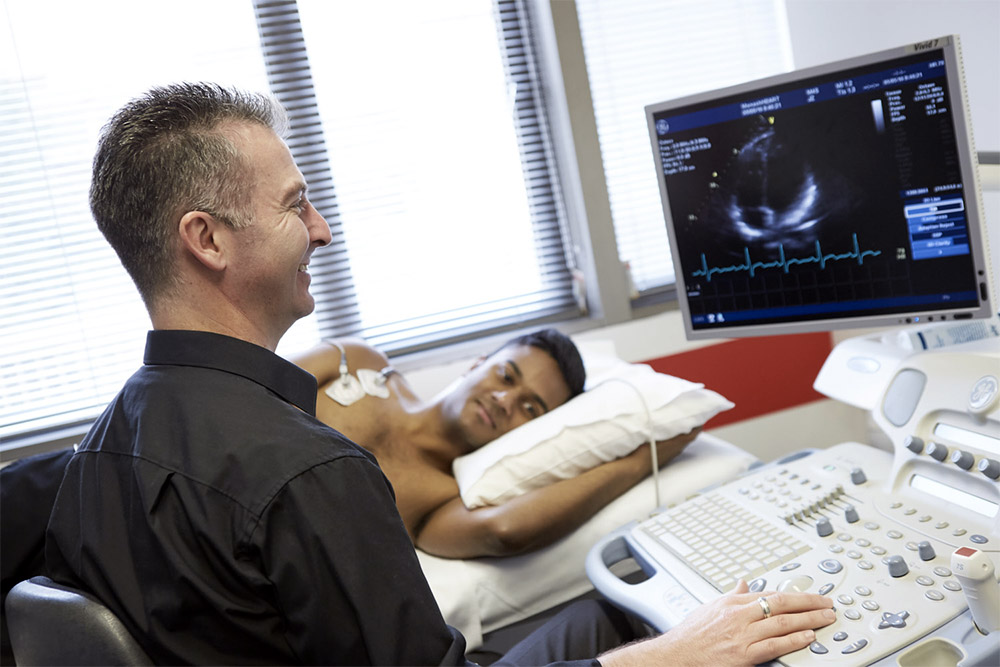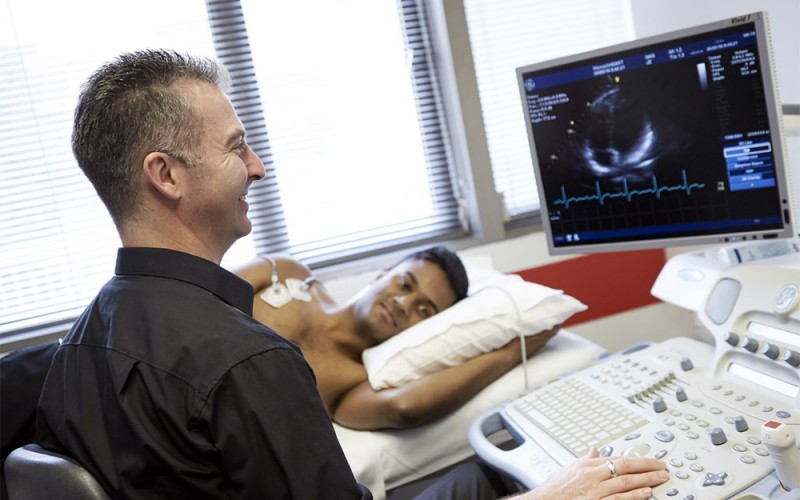Mitral Valve Prolapse is one of the common heart valve issue. Mitral Valve Prolapse or MVP is a condition where both your valve flaps not closing properly.
Most people who have MVP have this condition since the day they are born.
In most cases, Mitral Valve Prolapse doesn’t cause any noticeable symptoms at all, these people also usually never experience health issue due to their valve issue.
Because many people doesn’t know they have MVP until they are diagnosed, most people tend to be shock and surprised when they figure out that they have valve issue.
Symptoms of Mitral Valve Prolapse
Although MVP doesn’t cause any symptoms most of the time but when the symptoms do show up it is probably because your blood is leaking backward through the valve.
Here are several most noticeable symptoms of people that have MVP:
- Chest pain
- Fast heart rate
- Irregular heart beat (arrhythmia)
- Shortness of breath
- Fatigue
- Migraine headaches
- Fainting
- Dizziness
- Panic attacks and anxiety
How is Mitral Valve Prolapse Diagnosed?

Your cardiologist usually will do some test to really make sure that there’s something wrong with your heart valve.
Sometimes a murmur will be noticeable by your cardiologist when he/she put a stethoscope in above your heart.
Most cardiologist will also put you on echocardiogram, treadmill stress test and even a chest x-ray.
Complications
Complications may occur on patients that have Mitral Valve Prolapse. Please consult with your cardiologist if you’re having one of these complication:
Mitral Regurgitation
This is the most common complication on people that have Mitral Valve Prolapse. Mitral regurgitation means that your valve is leaking blood back to the left atrium.
Arrhythmias
Arrhythmia or irregular heart beat is another example of complication that can be caused by Mitral Valve Prolapse.
People that doesn’t have heart problem may also experiencing arrhythmia, they are usually harmless but if you feel they are occurring so often you need to consult your cardiologist right away.
In my personal experience, I’m only experiencing arrhythmia when I eat something that MVP patient shouldn’t have ate like cheese, coffee/tea, alcohol, MSG, chocolate, sweets, cigarette or when I’m lack of sleep and stress out.
Heart valve infection
Endocarditis or heart valve infection usually happens when bacteria enter your bloodstream and attach to damaged areas of the heart.
Some cardiologist may advise you to take antibiotics before doing any dental procedures to prevent infection.
Things to Avoid on Mitral Valve Prolapse Patients

Please avoid these things if you want to have less MVP symptoms in your life.
Stress
Try avoiding stress all the time, try be more relax and enjoy your life. Stress won’t make your life easier, it will only make it harder for you.
Also, stress can lead to various MVP symptoms such as arrhythmia, headache etc.
Food & Drinks
Here are list of food you need to avoid to keep you symptoms-free.
- Cheese
- MSG
- Coffee or tea
- Alcohol
- Cigarette
- Chocolate
- Diary products
- Fast food and greasy food
- Too much sugar
- Too much carbs
Less sleep
Always, I mean ALWAYS make sure you have enough sleep & rest every day and try sleeping before 10 PM.
Treatment for Mitral Valve Prolapse

On most people, treatment is not required because these people isn’t showing any symptoms.
However, if symptoms does occur your cardiologist may prescribe you with these type medicines:
- Beta Blockers
It helps reducing your heart rate, lowering your blood pressure. Some people also report beta blocker makes them more relax and less anxious. - Diuretics
Helps remove excess sodium & also fluid in your body - Heart rhythm medications
- Blood thinners
Helps reduce blood clots
Surgery
If the level of regurgitation have reach severe regurgitation, at some point in the near future your cardiologist will have to do a open heart surgery to help fix your mitral valve.
Your cardiologist will also decide whether they’ll repair your valve or replace it with a new one.
There are many people that have experience the benefit after having the surgery. They are feeling much better and they can live a very happy life.
If the effect of the regurgitation is still treatable using medications, your cardiologist will suggest doing the surgery.
Exercise
Exercise also helps improve your heart condition and makes you more relax. Try walking 20-30 minutes per day at least 3 times a week.
If you can’t do 20 minutes, start with walking 50-100 meters and improve your distance gradually.
Please consult your cardiologist before doing any physical exercises. You’ll may also need to take your meds first before doing any exercise.
When Should I Go to the Hospital or Call 911?
In some situations, you may feel the symptoms are too hard to handle. If this happens to you and you are really worry on your health please visit the hospital or call 911 and stay calm.
Go straight to the hospital or call 911 if one of this symptoms occur:
- You are having difficulty in breathing, feeling chest pain or pressure in your chest
- Your heart rate increased drastically
- Weakness in your arm or leg
- Some part of your face feels numb
- You loss of consciousness
Always Take Notes
MVP symptoms can come and go anytime, that’s why it would be nice for people who have MVP to always kept a note of everything you do for the whole day. Because lots of MVP symptoms occurs because of something that we did previously.
By taking notes, you can help your self reduce or even prevent the symptoms from happening again.
For example, I would feel pain in left side of my chest, way below the arm pit after I lift and carry my daughter who weigh 35 lbs.
Another example, I always have lots of skipped beat after eating something with cheese or MSG in it.
Without taking notes I may not know what could have cause the above symptoms and the symptoms.
Conclusion
Mitral Valve Prolapse is not life threatening in most cases, most people that have MVP doesn’t even realized they have one because they don’t experience any symptoms at all.
MVP is treatable by medications, only a small portion of MVP patients that have to go through surgery to fix their heart valve.
Go enjoy your life, you can still live a very normal life with MVP as long as you life a healthy life and also eat healthy food.
Also don’t forget take the medications prescribe by your cardiologist and do an echocardiogram at least once per year to check the status of your valve.




Leave a Reply